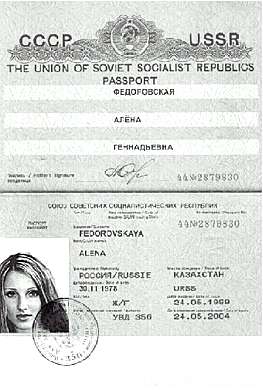ANTI-SCAM GUIDE – Read how to make scammers leave ukraine dating odessa alone, and choose the right girls from the very beginning. Soviet Unions – How successful are marriages between Russian women and western men?

Are there some real agencies with real women out there? Seek a reliable Russian Dating Agency? DISCLAIMER: This page is compiled from Russian Brides Cyber Guide visitor’s comments only. Amour of Ukraine now trading as Interchance at www.
Non-existing agency requesting money for visa and tickets “to bring you lady to you”. Agency can only be contacted via e-mail. Suspected in false correspondence on behalf of women. No portion of this site may be reproduced without written permission from the author. This article needs additional citations for verification. The German minority in Russia, Ukraine and the Soviet Union was created from several sources and in several waves. The 1914 census put the number of Germans living in the Russian Empire at 2,416,290.
In 1989, the German population of the Soviet Union was roughly 2 million. In the Russian Empire, Germans were strongly represented among royalty, aristocracy, large land owners, military officers and the upper echelons of the imperial service, engineers, scientists, artists, physicians and the bourgeoisie in general. German, while French was often the language of the high aristocracy. The earliest German settlement in Russia dates back to the reign of Vasili III, Grand Prince of Moscow from 1505 to 1533. Russia into a more modern European state are believed to have derived in large part from his experiences among Russia’s established Germans. Through wars and the partitions of Poland, Prussia acquired an increasing amount of northern, western, and central Polish territory.
Napoleon’s victories ended the short existence of South Prussia. The French Emperor incorporated it and other territories into the Duchy of Warsaw. After Napoleon’s defeat in 1815, however, the Duchy was divided. Tsarina Catherine II was a German, born in Stettin in Pomerania, now Szczecin in Poland. She proclaimed open immigration for foreigners wishing to live in the Russian Empire on July 22, 1763, marking the beginning of a much larger presence for Germans in the Empire. German immigration was motivated in part by religious intolerance and warfare in central Europe as well as by frequently difficult economic conditions.





